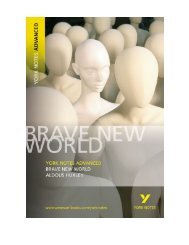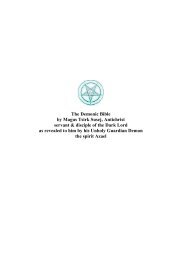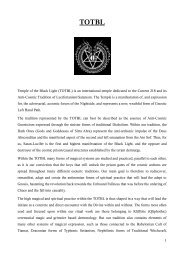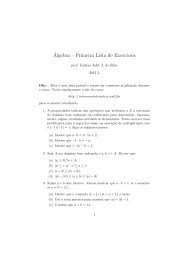Satanism Today - An Encyclopedia of Religion, Folklore and Popular ...
Satanism Today - An Encyclopedia of Religion, Folklore and Popular ...
Satanism Today - An Encyclopedia of Religion, Folklore and Popular ...
Create successful ePaper yourself
Turn your PDF publications into a flip-book with our unique Google optimized e-Paper software.
8 The <strong>An</strong>ticult Movement<br />
stages, opposition to minority religions had organized<br />
itself around deprogrammers—individuals<br />
who forcibly <strong>and</strong> sometimes violently abducted<br />
individuals from nontraditional religions. “Cult”<br />
members were snatched <strong>of</strong>f the street <strong>and</strong> locked<br />
up in houses or motel rooms, where their beliefs<br />
were assaulted until their religious faith was<br />
destroyed. Deprogramming, controlled entirely by<br />
independent entrepreneurs, could never have<br />
developed into a viable pr<strong>of</strong>ession without the<br />
simultaneous development <strong>of</strong> secular “cult watchdog”<br />
groups. These organizations regularly referred<br />
concerned parents to deprogrammers.<br />
Deprogrammers, anticult organizations, <strong>and</strong><br />
other less directly involved individuals together<br />
constitute what academic observers term the<br />
anticult movement, sometimes referred to as the<br />
secular anticult movement to distinguish it from<br />
Evangelical Christian anticult groups. The<br />
Christian anticult movement is distinguished<br />
from the secular anticult movement by its focus<br />
on theological issues. While the religions criticized<br />
by Christian anticultists may be accused <strong>of</strong><br />
exploiting <strong>and</strong> brainwashing their members, the<br />
more important accusation is their theological<br />
divergence from Evangelical Christianity. Because<br />
<strong>of</strong> this theological emphasis, certain groups not<br />
normally considered “cults”—such as the<br />
Mormons <strong>and</strong> the Jehovah Witnesses—are classified<br />
as such by the Christian ACM. The Christian<br />
ACM, unlike the secular ACM, also distanced itself<br />
from the practice <strong>of</strong> deprogramming.<br />
The Citizen’s Freedom Foundation—later<br />
renamed Cult Awareness Network—eventually<br />
became the national umbrella group for the ACM<br />
in the United States. In addition to working<br />
closely with deprogrammers, anticult groups<br />
attempted to influence legislators at all levels <strong>of</strong><br />
government to pass laws against cults (e.g., a<br />
proposed New York law would have made founding<br />
a “pseudo-religion” a felony). First Amendment<br />
rights <strong>and</strong> other considerations frustrated<br />
most attempts to legislate against nontraditional<br />
religions. Where anticultists were the most<br />
successful was in the mass media. Dramatic<br />
stories about brainwashed young people being<br />
exploited by sinister “cult” leaders have an appeal<br />
that is difficult to deny, <strong>and</strong> the media provided<br />
virtually an open forum for the propagation <strong>of</strong><br />
the anticult viewpoint.<br />
The Satanic ritual abuse movement enjoyed<br />
similar success in the media, <strong>and</strong> adopted both the<br />
stereotype <strong>of</strong> sinister cults <strong>and</strong> the mind control<br />
notion from the ACM. Although understood as a<br />
kind <strong>of</strong> cult mind control, Satanic mind control<br />
was originally invoked for a completely different<br />
reason: Cult mind control explained why<br />
someone’s adult child could join a “crazy” religious<br />
group. Satanic programming, on the other h<strong>and</strong>,<br />
explained how a hypothetical network <strong>of</strong> secretive<br />
underground Satanic cult groups could manage to<br />
control both victims <strong>and</strong> members so that no one<br />
would ever reveal the truth about their existence. It<br />
also provided a theoretical background for underst<strong>and</strong>ing<br />
how recovered memory therapy (hypnotizing<br />
alleged victims to uncover repressed memories<br />
<strong>of</strong> abuse) worked <strong>and</strong> why it was necessary.<br />
The ACM climbed aboard the ritual abuse<br />
b<strong>and</strong>wagon to exp<strong>and</strong> its own scope <strong>of</strong> activities.<br />
In the 1991 book, The <strong>Satanism</strong> Scare, James<br />
Richardson noted that:<br />
Having joined those promoting the idea that<br />
<strong>Satanism</strong> is increasing, the ACM is taking a<br />
leading role in the effort to convince America<br />
that Satanists are brainwashing people<br />
everywhere. ACM groups sponsor conferences<br />
on the topic <strong>and</strong> their publications promote<br />
their view. This serves ACM interests, meshing<br />
particularly well with the ideology <strong>of</strong> one<br />
segment <strong>of</strong> the ACM—fundamentalists who<br />
believe that Satan is active in the world. Other<br />
segments <strong>of</strong> the ACM, including some mental<br />
health pr<strong>of</strong>essionals, are not religiously<br />
motivated, but also find it worthwhile to<br />
promote the idea <strong>of</strong> <strong>Satanism</strong> as a growing<br />
threat to our society. (209)<br />
As public concern over <strong>Satanism</strong> grew, ACM<br />
groups like CAN <strong>and</strong> AFF (American Family<br />
Foundation) received so many inquiries about<br />
<strong>Satanism</strong> <strong>and</strong> cl<strong>and</strong>estine Satanic cults that they<br />
developed information packets to sell to callers.<br />
Composed largely <strong>of</strong> photocopied newspaper <strong>and</strong><br />
popular magazine articles, such packets simply<br />
repeated popular stereotypes.
















